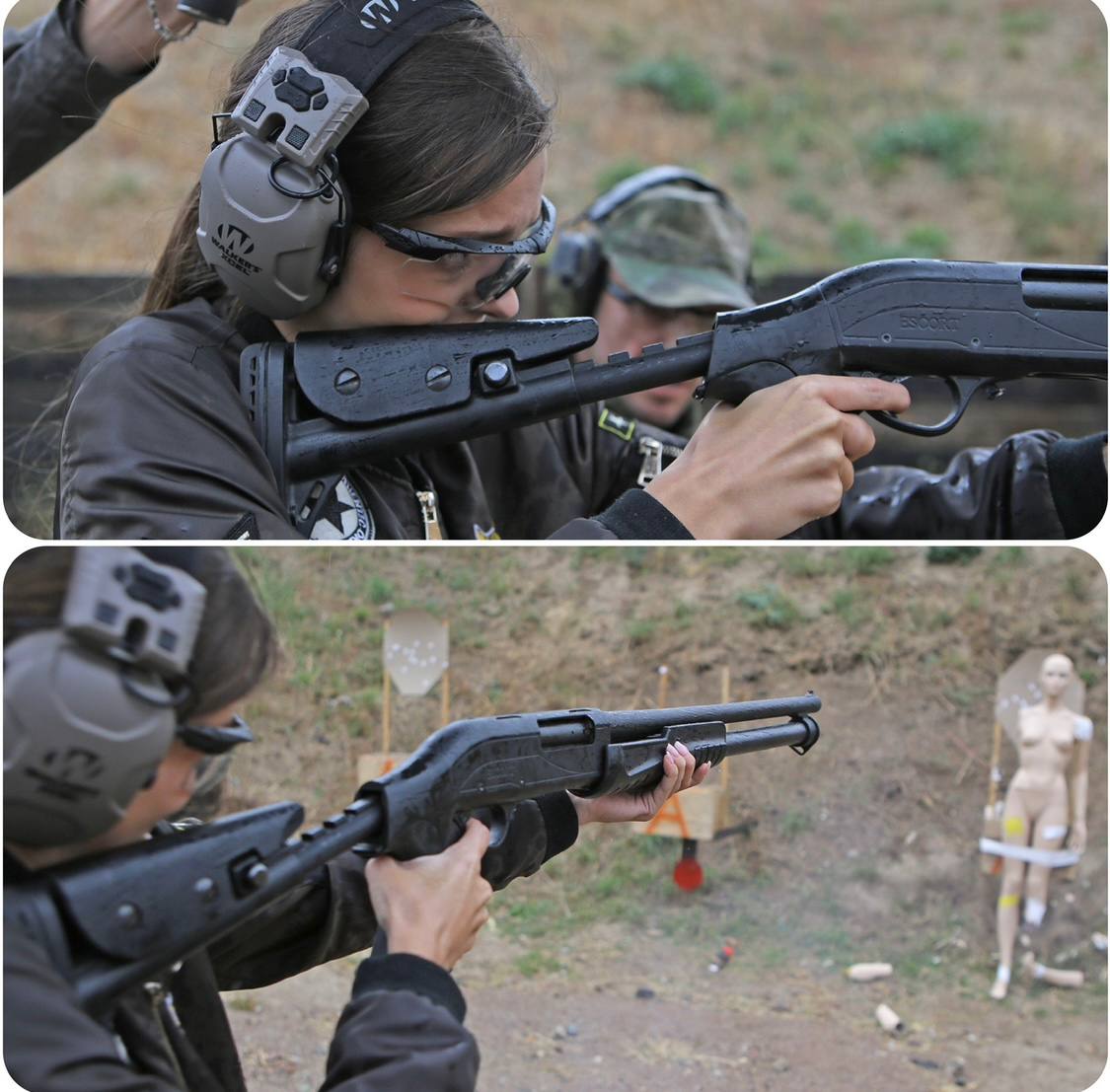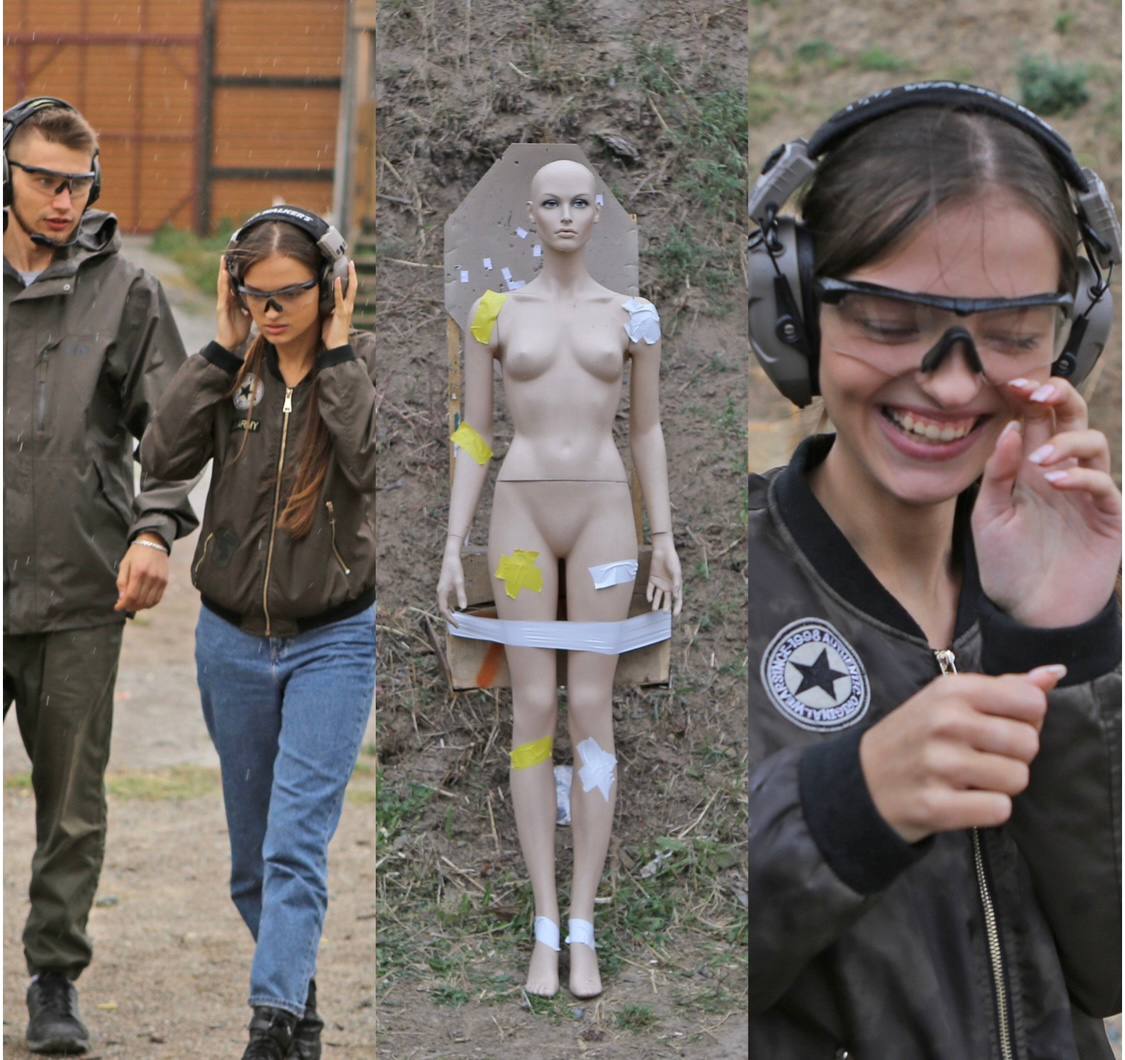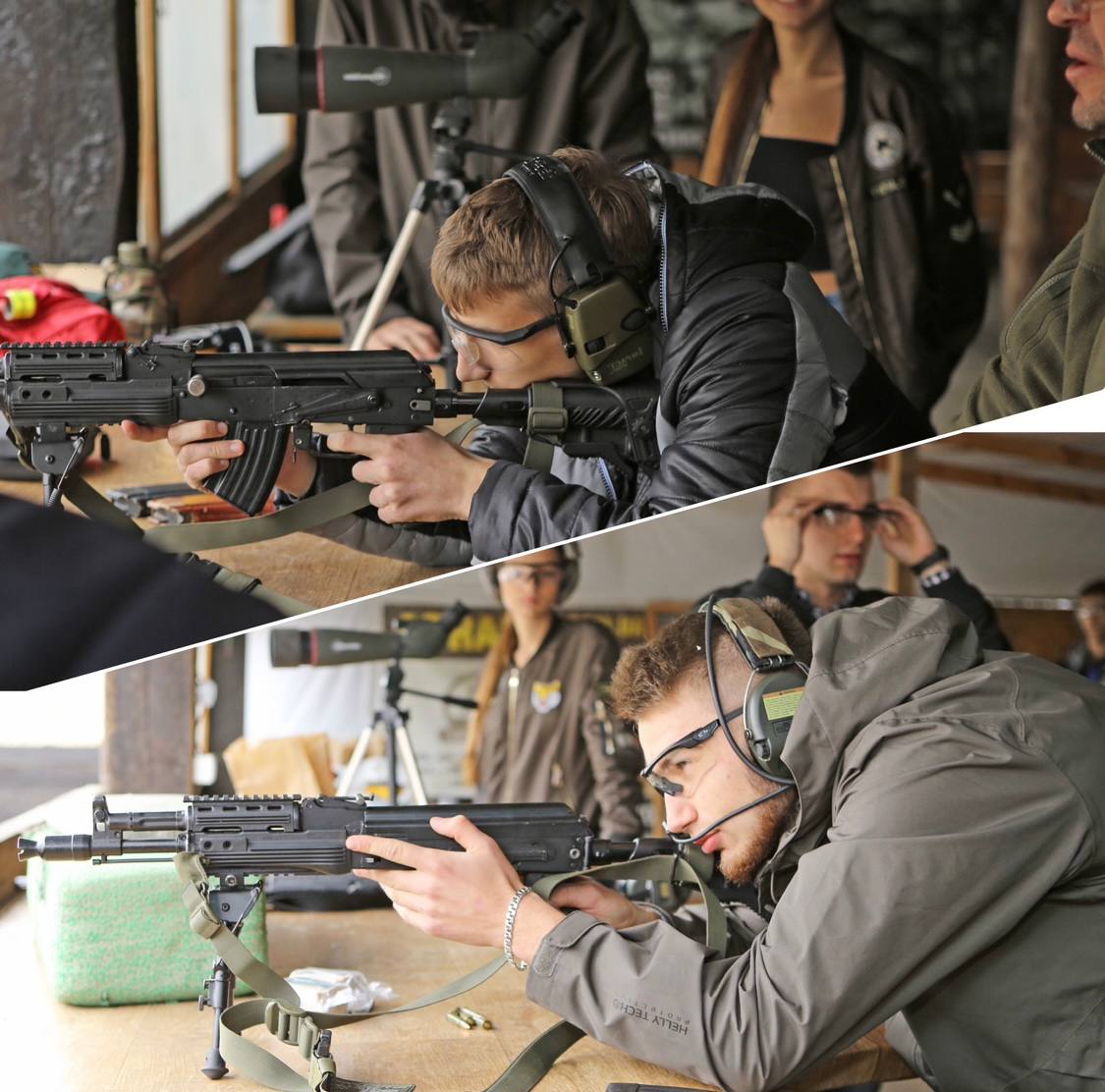- 01 September 2023
Firearms for civilians (Part 1)

Sports, entertainment, or a necessity of today?
We'll delve into practical insights from professional bodyguards.
Starting a series of publications for people who own or plan to acquire firearms for self-defense.
We will address questions such as:
Is civilian firearms ownership for entertainment, sports, or survival necessity?
What should beginners consider when planning to acquire basic firearm handling skills?
How to learn safe firearm usage?
How to prepare for using firearms for self-defense in extreme situations?
What types of firearms are most effective in different self-defense situations?
What are the common mistakes during training and firearm usage, and how to avoid them?
What safety rules and basic personal protective accessories are needed during firearm training?
How to maintain your firearms?
How many rounds should you have, and where should you store them?
Is a personal first aid kit necessary, and if so, what kind?
Finding an instructor or useful courses specifically for learning self-defense can be challenging. How do you recommend one goes about this?
As you can see, there are many questions, and the answers to them are not always obvious, but they are crucial. Sometimes, very crucial! Because how well we can react in a self-defense situation can determine whether we stay alive or not...
There are many videos online on how to handle and use firearms. For someone just starting their journey in self-defense with firearms, it can be quite challenging to navigate through the flood of videos where guys of sporting stature shoot various types of firearms from different positions, with tactical movements in teams, measuring exercise speed, and so on.
So, we decided to share insights based on our extensive experience in training bodyguards, military personnel, and civilians.
Actually, this topic is important, interesting, and almost endless! Therefore, we will move forward step by step with each new publication.
So, in order to move forward, we suggest starting with an understanding of the key differences between Sport and Self-Defense:
In our opinion, such awareness is crucial because it will shape your approach to acquiring practical self-defense skills with firearms!
There are actually many differences between sport shooting (or training based on sporting methods) and acquiring self-defense skills.

First and foremost, and this is important, most sport shooters are skilled marksmen, and that's a fact. So, if you have the desire and opportunity to engage in shooting sports, go ahead. Sport shooters train a lot. It's good, but it requires a lot of time and money. An average gun owner who has acquired a firearm for self-defense often doesn't have the time and resources to invest as much as a sport shooter.
Typically, a sport shooter has a competition calendar, so they know when the next challenge will take place. This allows them to approach the competition fully prepared, in peak physical, psychological, and shooting condition.
They rest well before the competition, get enough sleep, mentally prepare for the competition, arrive at the competition venue in advance, and familiarize themselves with the exercises they will need to perform. They can practice the exercise without firearms, adapt to the conditions and target settings. Moreover, a sport shooter can check the weather forecast for the competition day and prepare accordingly, taking the necessary ammunition.
For the average person with a firearm in the context of self-defense, it's different!
We don't know when an attack will happen, under what circumstances, and in what physical and psychological state a person will be at that moment. They may be tired, busy with work, anxious, nervous, or even scared, inattentive, sad, or happy, etc.
We don't know where the attack will take place: on the street, in a building entrance, in a car, at home, at work, in a store... It can happen anytime and anywhere!
We don't know how many people will need protection nearby.
We also don't know the weather conditions and what clothing will be worn.
A sport shooter doesn't need to conceal their firearm during training and competitions.
On the contrary, a firearm owner, unlike a sport shooter, must carry their firearm concealed, which makes drawing it more complex. This skill also needs to be trained. If the firearm is left in a purse, a car's glove compartment, or the trunk during a critical moment, it won't help and could even harm if the attacker gains control of it!
For a sport shooter, hitting the target, whether it's a cardboard sheet or a metal plate, means scoring. Ideally, they aim for the bullseye or the "10-ring" and strive to get as close as possible.

For a person who has made the decision to defend themselves using firearms, hitting the target means causing sufficient firearms or physical damage to prevent the aggressor from continuing their hostile actions against themselves and third parties. The same applies to aggressive, uncontrollable animals.
THE STRESS FACTOR.
Finally, stress and psychological pressure differ greatly between a sport shooter at competitions and a person who is under attack.
While at competitions, a sport shooter may feel pre-competition excitement, and their overall anxiety level may be elevated, which could potentially affect their final result.
However, despite this, the sport shooter doesn't need to make decisions about implementing their acquired skills beforehand. They precisely know where they are shooting, why, in what sequence, and physical violence is not applied to them during shooting.
A person with a firearm who is under attack experiences a significantly higher, uncontrolled level of stress. In the midst of this stress, the person defending themselves must decide on the use of the firearm, its legality, and the sufficiency of its application, or choose an alternative method of defense. Additionally, the potential risk of injuring third parties must be taken into account.
Therefore, it's crucial to understand how little a sport shooter and a firearm owner, who has acquired it for self-defense, have in common.
Considering what was mentioned above, it's important to train according to the goals of self-defense and life preservation!
How exactly?
To understand what training will be beneficial for you, you need to understand from the very beginning what is fundamental and essential, and what is secondary. You need to know when you need an instructor and a shooting range, and when and how you can benefit from self-training without cost.
Answers to all these questions will be published in materials and videos prepared for you, where we will explain in accessible language how to quickly progress from a beginner to a confident firearm owner.
So, stay tuned for our publications - there will be a lot of interesting and useful information that will surely change your perception of a person with a firearm!
Together towards victory!
We are a Free and Strong Nation!
Everything will be fine!


